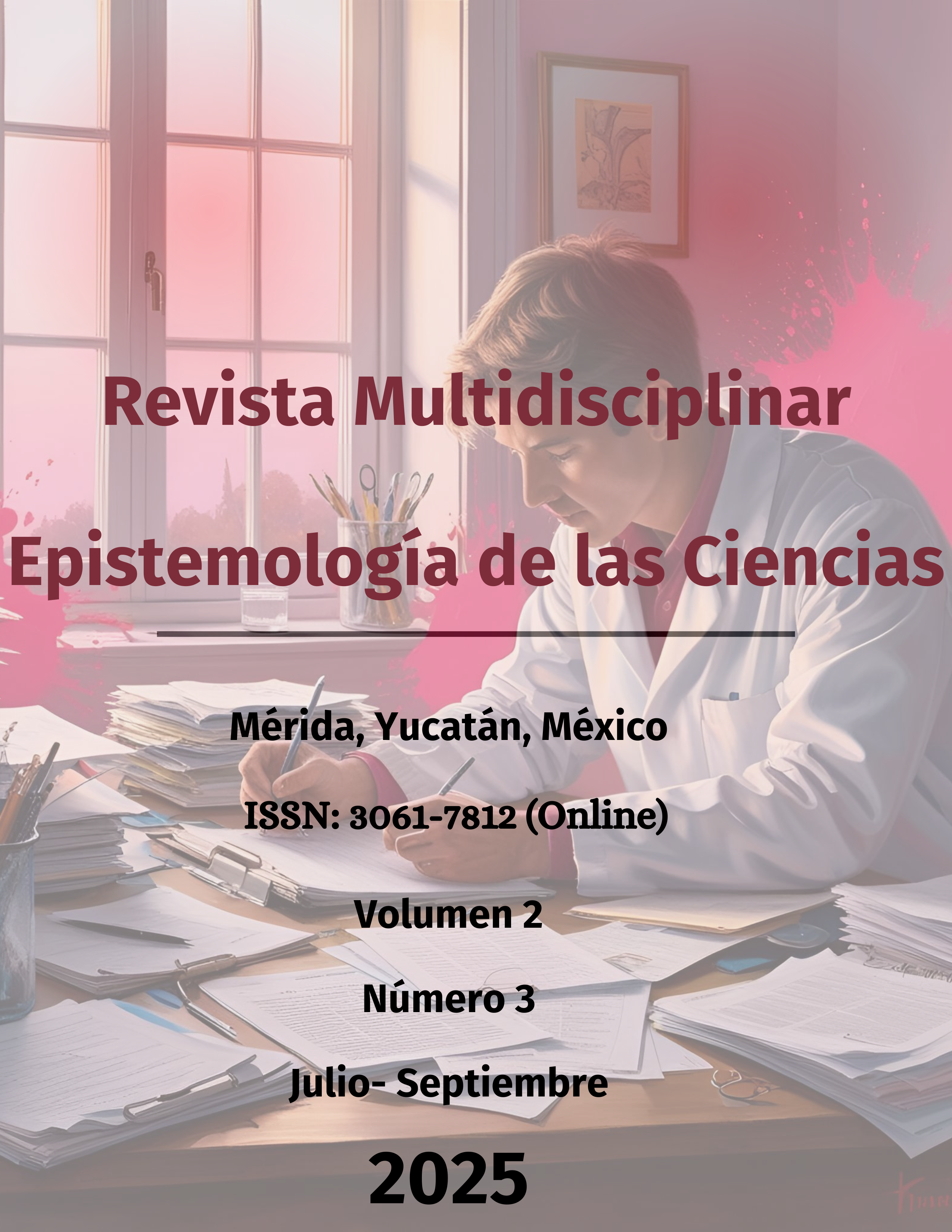Artificial intelligence in education: opportunities, challenges, and transformations in the teaching role
DOI:
https://doi.org/10.71112/2021f847Keywords:
artificial intelligence, education, teacher, adaptive learningAbstract
This essay aims to analyze how artificial intelligence (AI) is transforming education by providing tools that simulate human cognitive processes, enabling the personalization of content, the optimization of tasks, and support for pedagogical decision-making. Emerging models such as the Digital Pedagogy for Sustainable Educational Transformation, AI-Based Cognitive Education, Transformative Pedagogy with AI, and Student-Centered Learning are examined, as they enhance adaptive and collaborative learning experiences. Furthermore, the essay critically reflects on the challenges posed by AI, such as the risk of limiting students’ autonomy and reflective capacity if algorithmic logic predominates. Therefore, it is argued that the teacher’s role must evolve into that of mediator and pedagogical guide, balancing technological innovation with humanistic principles to ensure that education remains comprehensive, ethical, and centered on the holistic development of the student.
Downloads
References
Alemán de la Garza, L. Y. (2023). Ecosistema de pedagogía digital para fortalecer modelos educativos basados en el uso de tecnología. Editorial Transdigital. https://doi.org/10.56162/transdigitalb19 DOI: https://doi.org/10.56162/transdigitalb19
Balakrishnan, C. R. (2024). Transformative pedagogy: Harnessing AI tools for enhanced PowerPoint creation in educational settings. Journal of Applied Science, Engineering, Technology and Management, 2(2), 09 14.https://www.researchgate.net/publication/387122064 DOI: https://doi.org/10.61779/jasetm.v2i2.2
Bermeo-Paucar, J., Pérez-Martínez, L., & Villalobos Antúnez, J. V. (2024). Inteligencia artificial educativa. "Quinta ola", conectivismo e innovación digital pedagógica. European Public & Social Innovation Review, 9(2), 1–15. https://doi.org/10.31637/epsir-2024-1599 DOI: https://doi.org/10.31637/epsir-2024-1599
Castro, P. (2025, 31 de mayo). Reconfiguración del rol docente ante la automatización del aprendizaje. Observatorio Educativo, Universidad Señor de Sipán. https://observatorio.uss.edu.pe/educating/reconfiguracion-del-rol-docente-ante-la-automatizacion-del-aprendizaje
Huang, R., Adarkwah, M. A., Liu, M., Hu, Y., Zhuang, R., & Chang, T. W. (2024). Digital pedagogy for sustainable education transformation: Enhancing learner-centred learning in the digital era. Frontiers of Digital Education, 2(1), 1–15. https://doi.org/10.1007/s44366-024-0031-x DOI: https://doi.org/10.1007/s44366-024-0031-x
Internacional de la Educación. (2023). La tecnología, la inteligencia artificial y el futuro de la profesión docente. https://www.ei-ie.org/es/item/29105%3Ala-tecnologia-la-inteligencia-artificial-y-el-futuro-de-la-profesion-docente
Klopov, I., Shapurov, O., Voronkova, V., Nikitenko, V., Oleksenko, R., Khavina, I. y Chebakova, Y. (2023). Transformación Digital de la Educación Basada en Inteligencia Artificial. Revista TEM . https://doi.org/10.18421/tem124-74 DOI: https://doi.org/10.18421/TEM124-74
Lynch, R. (2023). Oportunidades de innovación pedagógica con asistencia de inteligencia artificial (IA). CAF - Banco de Desarrollo de América Latina. https://scioteca.caf.com/bitstream/handle/123456789/2207/Oportunidades%20de%20Innovaci%C3%B3n%20Pedag%C3%B3gica%20con%20Asistencia%20de%20Inteligencia%20Artificial%20%28IA%29.pdf?isAllowed=y&sequence=3scioteca.caf.com+1
OpenAI. (2023). What is artificial intelligence? https://openai.com/research/what-is-artificial-intelligence
Paredes Gallardo, C. (2024). Aplicación de la inteligencia artificial en el ámbito educativo. Análisis de buenas prácticas y recomendaciones. Revista De Educación Y Derecho, (2-Extraordinario), 512–539. https://doi.org/10.1344/REYD2024.2-Extraordinario.49204 DOI: https://doi.org/10.1344/REYD2024.2-Extraordinario.49204
Rondón, G. (2023). El rol docente en el uso de la inteligencia artificial en ambientes educativos. Dialógica, Revista Multidisciplinaria, 20(2), 49-70. https://revistas.upel.edu.ve/index.php/dialogica/article/view/2606/2767/6153 DOI: https://doi.org/10.56219/dialgica.v20i2.2606
Saint‑Pierre, C. (2024, 5 de julio). ¿Puede la IA generativa reemplazar el rol del docente? Universidad de Chile. https://uchile.cl/u218090
Salas, P., & Díaz, M. (2024). Riesgos éticos de la inteligencia artificial en instituciones de educación superior: Una perspectiva a través de las representaciones sociales. CIECE, 2024. https://2024.ciecem.org/ponencia/riesgos-eticos-de-la-inteligencia-artificial-en-instituciones-de-educacion-superior-una-perspectiva-a-traves-de-las-representaciones-sociales/Ciecem 2024
Sankaralingam, B. P., Anusha, J. S., Chatiyode, V., & Madeswaran, T. (2024). Embracing learner-centric pedagogy in the age of artificial intelligence. In AI-Enhanced Educational Technologies (pp. 45–68). CRC Press. https://doi.org/10.1201/9781003469315-3 DOI: https://doi.org/10.1201/9781003469315-3
Siemens, G. (2013). Learning analytics: The emergence of discipline. American Behavioral Scientist, 57(10), 1380-1400. https://doi.org/10.1177/0002764213498851 DOI: https://doi.org/10.1177/0002764213498851
Vallejo, A. (2024). La transformación del rol docente en la era de la Inteligencia Artificial: hacia un liderazgo pedagógico estratégico. Trayectorias Universitarias, 10(19), 165. https://doi.org/10.24215/24690090e165
Vallejo, Alcira. (2024). transformación del rol docente en la era de la Inteligencia Artificial: hacia un liderazgo pedagógico estratégico. Trayectorias Universitarias. 10. 165. 10.24215/24690090e165. DOI: https://doi.org/10.24215/24690090e165
Zorrilla Abascal, M. L. (2023). Convergencia de modalidades y modelos educativos: un escenario en movimiento. Universidades, (98). https://doi.org/10.36888/udual.universidades.2023.98.714 DOI: https://doi.org/10.36888/udual.universidades.2023.98.714
Downloads
Published
Issue
Section
License
Copyright (c) 2025 Multidisciplinary Journal Epistemology of the Sciences

This work is licensed under a Creative Commons Attribution 4.0 International License.











